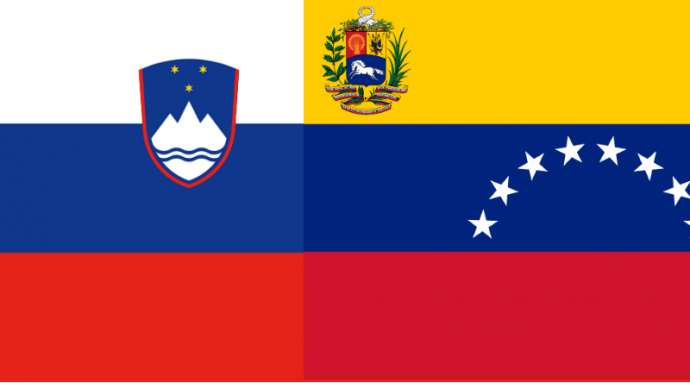STA, 20 January 2020 - Twenty-one Slovenians who asked for repatriation from Venezuela have already arrived in Slovenia, State Secretary at the Government Office for Slovenians Abroad Olga Belec told the press in Ljubljana on Monday. Six repatriates arrived in December and fifteen in January.
Of some 50 persons who asked for repatriation, 29 have been granted the status, while some of the applications are still being processed because the applicants had to supplement them. The office thus expects 15 more persons to move to their new homeland.
It was mostly young families that asked for repatriation, but the process remains open until the government decides otherwise, so new applications can still be submitted.
Repatriation procedures took rather long because safety was put first, Dejan Valentinčič, deputy head of the task force in charge of repatriation at the office, explained at today's press conference.
Two-thirds of the repatriates, who are dispersed around the country, live with their relatives, whereas the state has helped find the accommodation for the rest.
The repatriates have mostly settled in towns where they are expected to find a job easily. Some have already had their first job interviews, said Belec.
Many of the repatriates have completed higher education, and are also of very different ages, with the youngest being five years old.
Although many do not speak Slovenian, they have already started learning it, but they all mostly feel fine and are happy they can live in peace and freedom.
"We're happy that we're here and that we're safe," said Adreas Hočevar, who has moved here with his sister, wife and child.
While he has a hi-tech company in Venezuela, his sister would like to have a dance school here. "Dance is running through my veins," she said.
According to the office's estimates, there are up to 1,000 persons of Slovenian descent in Venezuela, but not all of them qualify for repatriation.
To qualify, the applicants have to meet several criteria, including proving their Slovenian origin, having no criminal record, and having "active ties with Slovenia, that is being active in Slovenian societies".
However, they do not have to speak Slovenian. Valentičič explained that language was one of the first features of national identity to disappear.
"You can be a good Slovenian without speaking the Slovenian language," he said, adding many preserve their identity with customs, such as baking the potica cake for holidays.
"For Slovenia, this was a pioneering project," Belec said about the Venezuela repatriation.
She noted this was the first time Slovenia had produced such an extensive repatriation action plan, which came with many challenges, from the very arrival of the repatriates to their accommodation and employment.







